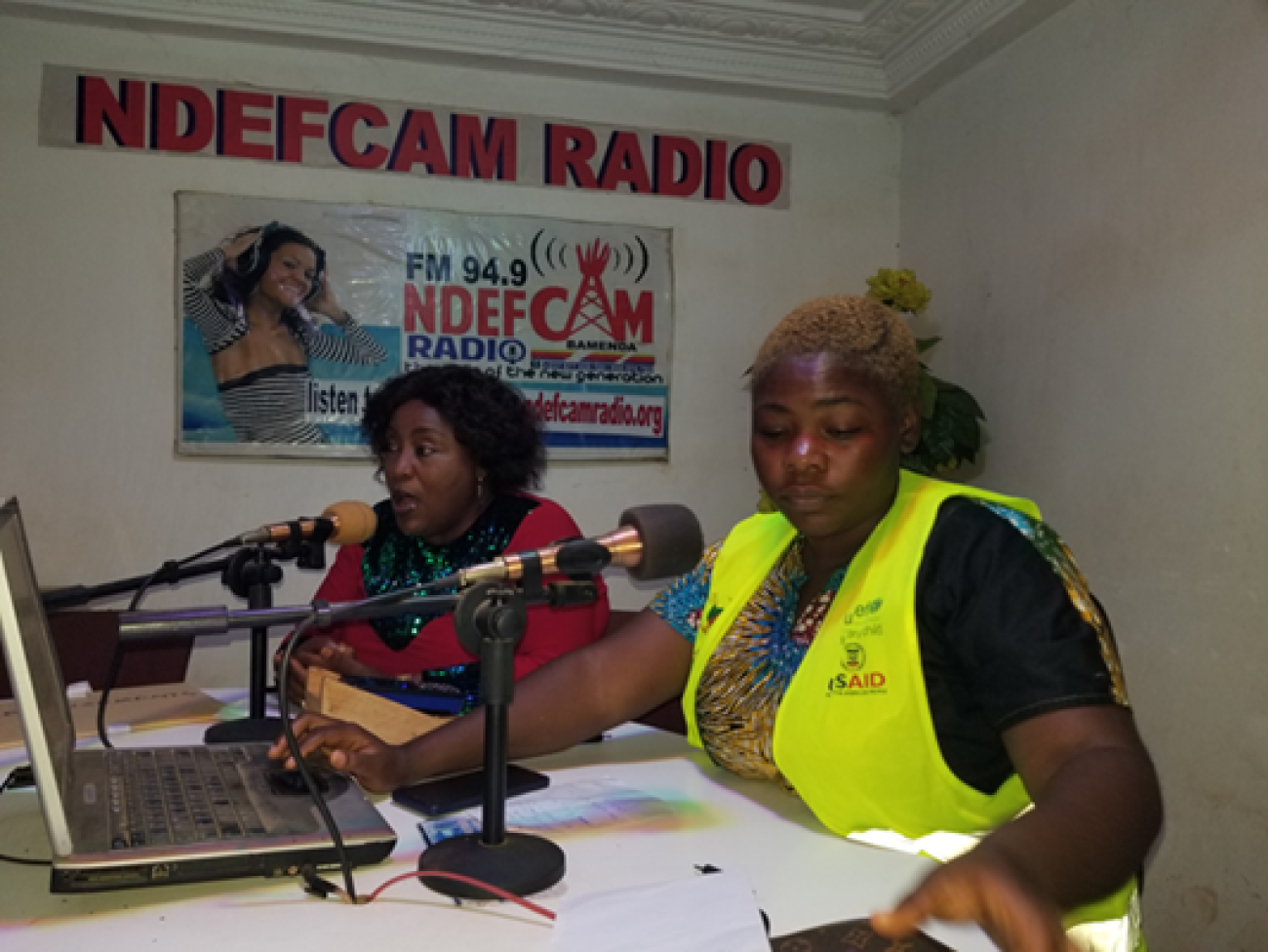COVID 19 vaccination: when women act

women leaders are leading targeted community outreach to generate demand for COVID-19 vaccination
The COVID 19 pandemic has exacerbated an already fragile situation as the North-West region is facing an unprecedented security crisis. For some populations, it would take several hours of transport by car and canoe, through unsafe areas, to reach a health centre if they had to seek treatment. In addition, because of misinformation and public mistrust of government services, many people have become reluctant to the COVID-19 vaccine.
It is to reverse this situation that, thanks to the United States Agency for International Development (USAID) funding, UNICEF is supporting COVID-19 response activities in accordance with the Government of Cameroon’s national plan. In its efforts, the US government supports the deployment of COVID vaccines and helps UNICEF support the safe distribution and delivery of vaccines, including those provided by the COVAX initiative, through a strengthening of the cold chain and logistics. However, to achieve this, it is important to put in place mechanisms to encourage the use of safe and effective vaccines and the continued application of protective measures within communities. In the North- West Region, women have committed to ensuring that every member of their community has access to the vaccine to reduce the risk of COVID-19 morbidity and mortality.
Ambitious and committed, about twenty women leaders per commune, trained and deployed in four localities of the region (Bamenda, Mbengwi, Santa & Tubah), made the fight against COVID 19 their fight. Getting people to accept vaccination is their credo. Through group educational talks, face-to-face awareness, mass awareness and radio awareness through interactive radio interviews. Their work is not easy. “It’s quite difficult because here the populations are already quite reluctant. But we must not let go because it is for the good of all,” confides Maria, one of the women.

After a few information sessions with the health staff, each of these women leaders set their goals to conduct six awareness sessions in the community. This enabled them to enlist 80 other community leaders. During their different moments of sharing with others, they discuss various topics such as: COVID 19 and its manifestations, the need to reinforce barrier measures, the different waves of COVID 19, the importance of COVID 19 vaccine, the different types of vaccines available and the dosage and where to get vaccines.
Thanks to their actions and their determination, throughout the month of May, nearly 7,000 people were made aware, 6,242 referred and 400 agreed to be vaccinated.
Happy to be able to do a saving act, each of these women leaders believes that this initiative is timely because many people who observed the barrier measures put in place to combat the spread of COVID 19 had moved away from it. Moreover, many people who refused to accept the pandemic were still in doubt. “We bring them information just where we can go with concrete examples and take them to adhere to vaccination. The myths surrounding the COVID 19 vaccine are also clarified”. Maria points out. As a bonus to their personal experiences, these leaders enjoyed the opportunity to raise awareness in the media through radio discussions because most of them had never participated in a radio show, let alone visited a radio studio.






